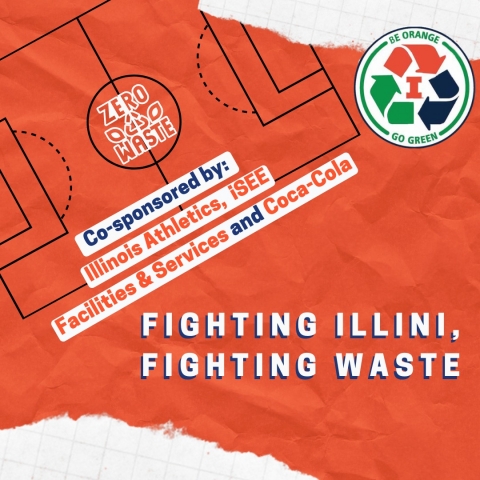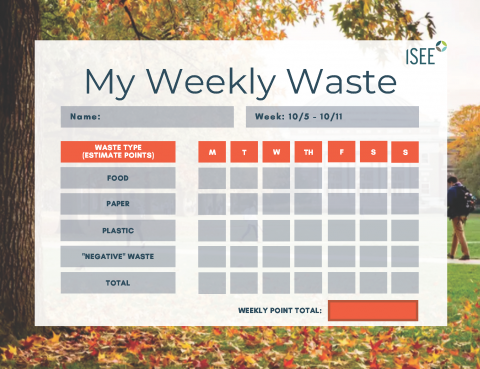You are here
Decrease Wasteful Practices through Behavior Change (Ongoing)
The Illinois Climate Action Plan includes a vision of Zero Waste for campus, but ultimately the only way to really achieve Zero Waste is by getting behavior change in individuals.
Materials consumption contributes directly to climate change. It requires energy to mine, extract, harvest, process, and transport raw materials, and more energy to manufacture, transport and, after use, dispose of products. This is a throw-away society. Waste prevention and recycling are important components in the University’s effort toward carbon neutrality, and that includes behavior change.
The New York Times pubished an opinion about overconsumption in 2008, called "What's Your Cosumption Factor?"
Sub-projects
-
 (Ongoing)
(Ongoing) -

-

-
 (Proposed)
(Proposed) -
 (Completed)
(Completed) -
 (Completed)
(Completed)
- 1 of 2
- next ›
Project Video(s)
Recent Project Updates
-
4/24/2023Presentations given during the lunch sessions for each grade in the library. Franklin STEAM hosts sustainability speakers each April in honor of Earth Month. Thanks so much for coming!!!We really appreciate your time and energy today...
-
12/3/2021The Zero Waste iCAP Team met on Friday, December 3 to discuss and finalize the two recommendations related to the team's water bottle behavior change campaign. These include a drinking water behavior survey and a recommendation to track water filter...
Project Location(s)
This map is interactive! Click (or touch) and drag to pan; scroll (or pinch) to zoom.
Project Team
-
Primary Contact:
Bart BartelsProject Leader:
Tracy Osby
Themes
-
Primary Theme:
Other Themes:
